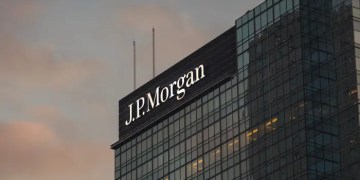Key Takeaways:
- China’s premium brands have underperformed the market, with stocks like Kweichow Moutai down 10%.
- Economic uncertainty and consumption downgrades are pressuring luxury goods while affordable brands fare better.
- Future economic stabilization and policy shifts could potentially revive spending and improve stock performance.
What Happened?
China’s economic slowdown has turned eager shoppers into cautious spenders, impacting high-end brands significantly. Stocks of premium companies like Kweichow Moutai Co., Zhongsheng Group Holdings Ltd., and Topsports International Holdings Ltd. have fallen around 10% or more this year.
Despite efforts from Beijing to boost consumption, such as trade-ins for appliances and relaxed loan rules, spending remains lukewarm. During the Dragon Boat Festival, consumer spending was lackluster, indicating a broader trend of consumption downgrades. Foreign luxury brands also suffer, with some offering steep discounts to attract buyers.
Why It Matters?
This shift in consumer behavior holds significant implications for investors. Premium brands, once buoyed by China’s burgeoning middle class, now face a stark contrast as consumers prioritize value over luxury.
Kweichow Moutai, for instance, has seen its stock slide 9.9% in 2024, compared to a 3.2% rise in the CSI 300 Index. Analysts like Xiang Xiaotian from Shanghai Chengzhou Investment Management Co. predict this downturn for premium names hasn’t bottomed out yet. With foreign holdings in Moutai at their lowest since February, the market sentiment reflects a broader uncertainty about China’s economic recovery.
UBS Group AG has shifted preference away from domestic consumption stocks, highlighting tepid income growth and high utility costs as key concerns.
Investors should watch for potential policy shifts at the upcoming third plenum in July. Stronger measures to stimulate consumption could revive the market. David Chao, a strategist at Invesco Asset Management, suggests that continued relaxation of property measures might catalyze spending.
Data next week, pointing to a modest 3% growth in May retail sales, may underscore the need for more aggressive economic interventions. While premium brands currently face the brunt of the downturn, a broader economic stabilization could see a resurgence in consumer confidence and spending.

















